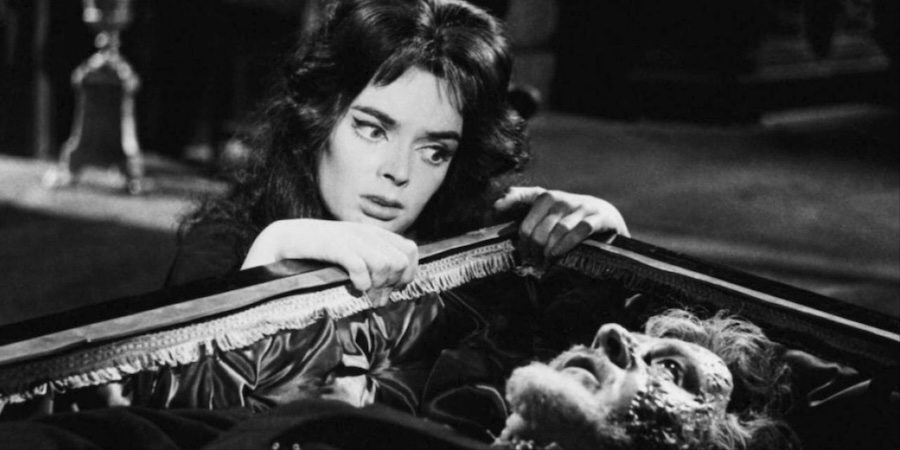Nicole Kidman, a name synonymous with versatility and fearless performances, has once again captivated audiences with her latest cinematic venture, *Babygirl*, a 2024 American erotic thriller that has set streaming platforms ablaze. Directed and written by Halina Reijn, this provocative film has garnered a 76% critical score on Rotten Tomatoes, earning praise for its bold exploration of desire, power dynamics, and taboo relationships. Despite a polarized audience score of 48%, *Babygirl* has become a cultural phenomenon, climbing HBO Max charts globally and sparking heated discussions about sexuality, power, and the portrayal of mature women in film. This article delves into the intricate layers of *Babygirl*, its critical and commercial success, the performances of its stellar cast, and the broader cultural and cinematic context that makes it a standout in modern cinema.
The Plot A Tale of Desire and Danger
*Babygirl* centers on Romy Mathis, played by Nicole Kidman, a high-powered CEO of a robotic process automation company in New York City. Romy’s life appears polished and perfect, with a successful career, a loving husband, Jacob (Antonio Banderas), a theater director, and two daughters, Isabel (Esther McGregor) and Nora (Vaughan Reilly). Beneath this veneer of success, however, lies a deep dissatisfaction with her sex life, a void that propels her into a risky affair with her much younger intern, Samuel (Harris Dickinson). The film opens with a seemingly innocuous encounter: Romy is nearly mauled by a dog on her way to work, only to be saved by Samuel, a charismatic young man who later turns out to be an intern at her company. This chance meeting ignites a torrid relationship that spirals into a complex interplay of dominance, submission, and emotional turmoil.
The narrative unfolds as Samuel, assigned as Romy’s mentee through the company’s mentorship program, boldly propositions her during a private meeting. Initially resistant, Romy succumbs to temptation, leading to a series of clandestine rendezvous that push boundaries both personal and professional. The film explores themes of power dynamics, as Samuel asserts control in their sexual encounters, claiming he holds the power to ruin Romy’s career with a single phone call. This dynamic is further complicated when Samuel ingratiates himself with Romy’s family, appearing uninvited at their country home and later at her daughter’s birthday party, dating Romy’s executive assistant, Esmée (Sophie Wilde). The affair unravels Romy’s carefully constructed life, forcing her to confront her desires, her marriage, and her role as a female leader in a male-dominated corporate world.
Inspiration and Cinematic Roots
Director Halina Reijn drew inspiration from the erotic thrillers of the 1980s and 1990s, citing influences like Paul Verhoeven’s *Basic Instinct* and Adrian Lyne’s *Indecent Proposal*. These films, known for their provocative exploration of sexuality and power, set the stage for *Babygirl*’s unapologetic dive into taboo territory. Reijn was particularly motivated by a real-life story of a woman who, after 25 years of marriage, had never experienced an orgasm, a revelation that sparked the film’s focus on female sexual awakening. Reijn’s intention was to normalize age-gap relationships where women are the older partners, challenging societal norms that often stigmatize such dynamics. She emphasized, “It should completely be normalized that the age gaps switch and that women have different relationships. We’re not trapped in a box anymore.”
“It should completely be normalized that the age gaps switch and that women have different relationships. We’re not trapped in a box anymore.” — Halina Reijn
The film’s setting in a rigid American corporate environment amplifies the stakes, as Reijn noted that the stricter hierarchy in the U.S. compared to Europe makes the affair feel even more forbidden. This cultural nuance adds a layer of tension, as Romy’s position as a female CEO places her under intense scrutiny, making her vulnerability to Samuel’s advances both a personal and professional risk.
Critical Reception A Polarizing Masterpiece
*Babygirl* has been a divisive film, earning a 76% critical score on Rotten Tomatoes and a 79 on Metacritic, reflecting strong critical enthusiasm tempered by some dissenting voices. Critics have lauded the film’s bold approach, with many praising Nicole Kidman’s “career-best” performance as Romy. The critical consensus on Rotten Tomatoes reads, “Nicole Kidman and Harris Dickinson memorably smolder together in *Babygirl*, with writer-director Halina Reijn’s clinical gaze keeping this sexually frank thriller more provocative than prurient.” Reviewers have highlighted the film’s ability to explore complex themes without descending into gratuitous sensationalism, a balance that sets it apart from other erotic thrillers like *Fifty Shades of Grey*.
Some critics, however, found fault with the film’s narrative clarity. One reviewer noted, “*Babygirl* wants to be challenging and incendiary, and it could’ve been all those things if it had a clearer through-line of what it’s really trying to say.” Others criticized the film for not fully exploring promising subplots, such as Romy’s cult childhood, which is mentioned but not deeply interrogated. Despite these critiques, the film’s provocative nature and Kidman’s fearless portrayal have kept it in the spotlight, earning her the Volpi Cup for Best Actress at the 81st Venice International Film Festival and a Best Actress award from the National Board of Review.
Audience reactions, however, have been far more polarized, with a 48% score on Rotten Tomatoes reflecting a disconnect between the film’s marketing and its actual content. Marketed as a steamy psychosexual thriller akin to *Fatal Attraction* or *Fifty Shades of Grey*, *Babygirl* left some viewers underwhelmed by its more nuanced and less sensational approach. Audience reviews have ranged from praise for its bold vulnerability to harsh criticism for its perceived lack of chemistry and plot substance. One viewer lamented, “This one deserves no stars. I have no idea why Nicole Kidman thought she had to make this movie and why Keith Urban didn’t stop her. It was terrible and demeaning.” Conversely, another viewer described it as “an erotic thrilling ride,” praising the performances of Kidman and Dickinson.
The Marketing Misfire
Much of the audience dissatisfaction stems from a marketing campaign that oversold the film’s erotic elements, leading viewers to expect a more overtly sexual narrative. The trailer, which emphasized the affair’s steamy encounters, set expectations for a high-stakes, consequence-heavy thriller. Instead, *Babygirl* offers a more introspective exploration of Romy’s internal conflict and the power dynamics at play, leaving some viewers feeling shortchanged. This misstep highlights a broader challenge in marketing complex films that straddle genres, as *Babygirl* blends erotic thriller elements with psychological drama and social commentary.
Box Office and Streaming Success
Despite its mixed audience reception, *Babygirl* has been a commercial triumph. Produced on a $20 million budget, the film grossed $28.1 million in North America and $64.6 million worldwide, tripling its budget and becoming one of A24’s highest-grossing films. Its theatrical release on December 25, 2024, capitalized on the holiday season’s appetite for bold, adult-oriented fare, proving that there’s still a place for R-rated thrillers amid family-friendly blockbusters. The film’s success continued on streaming platforms, with *Babygirl* climbing HBO Max charts in early 2025, reaching the top spot in countries like Albania and Bosnia and securing top-six positions in France, Denmark, Croatia, and Greece.
The film’s streaming dominance underscores its cultural impact, as viewers continue to engage with its provocative themes. Its availability on HBO Max since April 25, 2025, has fueled discussions about its portrayal of female sexuality and power dynamics, making it a standout in the streaming landscape. The film’s ability to generate buzz despite its divisive reception speaks to its bold narrative and Kidman’s star power, which continues to draw audiences to her projects.
Nicole Kidman’s Fearless Performance
At the heart of *Babygirl* is Nicole Kidman’s riveting portrayal of Romy Mathis, a role that has been hailed as one of her finest. Known for taking creative risks, Kidman delivers a performance that balances vulnerability and strength, capturing Romy’s internal struggle with authenticity. Her ability to portray a woman grappling with unfulfilled desires while navigating the pressures of her corporate role has earned her widespread acclaim. Critics have noted her “outrageously brave” portrayal, with one reviewer stating, “For an actor with a rep for doing buttoned-up, Nicole Kidman’s portrayal of Romy’s sexual awakening is outrageously brave – I can’t help but take my hat (and only my hat) off to her.”
Kidman’s preparation for the role involved close collaboration with director Halina Reijn, with whom she built a strong bond in New York. The two revised scenes together and shared personal stories, creating a safe space for Kidman to embrace the emotional and physical vulnerability required for the role. This trust was crucial, especially given the film’s explicit scenes, which were carefully choreographed with the help of intimacy coordinator Lizzy Talbot. Kidman’s commitment to the role extended beyond acting; she personally secured the rights to INXS’s 1988 single “Never Tear Us Apart” for the soundtrack, a task that A24 struggled with until Kidman intervened.
A Career of Bold Choices
*Babygirl* fits seamlessly into Nicole Kidman’s illustrious career, which spans over four decades and includes iconic performances in films like *Moulin Rouge!* (2001), *The Hours* (2002), for which she won an Oscar, and *Eyes Wide Shut* (1999), another erotic thriller that explored complex sexual dynamics. Her willingness to tackle unconventional roles, from the dark drama of *Rabbit Hole* (2010) to the controversial *The Paperboy* (2012), has solidified her reputation as an actor unafraid of pushing boundaries. *Babygirl* continues this tradition, showcasing her ability to portray complex, flawed characters with depth and nuance.
Kidman’s performance in *Babygirl* also highlights her ongoing commitment to exploring female sexuality and agency, themes that resonate with her previous work in films like *The Others* (2001) and *Big Little Lies* (2017–). Her portrayal of Romy as a woman reclaiming her desires in a patriarchal world adds a feminist layer to the film, challenging stereotypes about aging women and their right to sexual fulfillment.
The Supporting Cast A Stellar Ensemble
While Kidman’s performance is the centerpiece, the supporting cast elevates *Babygirl*’s narrative. Harris Dickinson delivers a compelling performance as Samuel, embodying both charm and menace as he navigates his role as Romy’s lover and subordinate. His ability to convey Samuel’s dominance while hinting at his vulnerability adds depth to the character, making their dynamic both thrilling and unsettling. Antonio Banderas, as Romy’s husband Jacob, brings emotional weight to a role that could have been one-dimensional, portraying a man grappling with betrayal and his own shortcomings. Sophie Wilde, as Esmée, Romy’s executive assistant, delivers a standout performance, particularly in a pivotal scene where she confronts Romy about the affair, urging her to protect her legacy as a female leader.
The ensemble is rounded out by Esther McGregor and Vaughan Reilly as Romy’s daughters, who provide a glimpse into the family dynamics affected by Romy’s choices. The casting of Esther McGregor, daughter of Ewan McGregor, adds an intriguing layer, as her real-life connection to Hollywood mirrors the film’s exploration of legacy and power.
Cultural and Historical Context The Erotic Thriller Renaissance
*Babygirl* arrives at a time when the erotic thriller genre is experiencing a renaissance, fueled by a renewed interest in complex narratives about desire and power. The genre, popularized in the 1980s and 1990s by films like *Fatal Attraction* (1987), *Basic Instinct* (1992), and *Unfaithful* (2002), fell out of favor in the 2000s due to oversaturation and changing audience tastes. However, recent years have seen a resurgence, with films like *Deep Water* (2022) and *Fair Play* (2023) revisiting the genre with a modern sensibility. *Babygirl* stands out in this landscape by focusing on a female protagonist’s perspective, exploring themes of agency and empowerment rather than punishment, a common trope in earlier erotic thrillers.
The film also taps into contemporary discussions about workplace dynamics, particularly in the post-#MeToo era. By portraying Romy as a powerful woman who risks everything for her desires, *Babygirl* challenges traditional narratives that often depict women as victims in such scenarios. The film’s exploration of dominance and submission, handled with nuance and care, reflects a broader cultural shift toward open conversations about consent and sexual agency.
Musical Context A Soundtrack of Seduction
The film’s soundtrack, featuring INXS’s “Never Tear Us Apart” and a score by Cristobal Tapia de Veer, enhances its seductive and unsettling atmosphere. The inclusion of “Never Tear Us Apart,” a sultry 1988 hit, underscores the film’s themes of forbidden love and emotional entanglement. The song’s haunting melody and lyrics about unbreakable bonds mirror Romy’s struggle to reconcile her affair with her commitment to her family. Kidman’s personal involvement in securing the song’s rights highlights her investment in the film’s emotional resonance.
Cristobal Tapia de Veer’s score, released digitally on December 25, 2024, complements the film’s tone with its blend of electronic and orchestral elements, creating a soundscape that is both sensual and ominous. The score’s dynamic shifts mirror the film’s emotional highs and lows, from the intensity of Romy and Samuel’s encounters to the quiet moments of introspection. Additionally, Sky Ferreira’s original song “Leash,” written and co-produced for the soundtrack, adds a modern edge, its provocative lyrics aligning with the film’s exploration of dominance and submission.
Behind the Scenes Production and Challenges
*Babygirl* was produced by A24, with David Hinojosa and Halina Reijn at the helm, alongside Julia Oh. The film faced challenges during production, including the 2023 WGA and SAG-AFTRA strikes, which forced a shift from a planned summer release to a Christmas debut. Filming took place in New York City from December 2023 to February 2024, capturing the city’s stark corporate landscapes and contrasting them with the warmth of Romy’s family home. The production’s attention to detail, from the sleek office settings to the intimate bedroom scenes, creates a visual dichotomy that mirrors Romy’s internal conflict.
The film’s intimacy coordinator, Lizzy Talbot, played a crucial role in ensuring that the explicit scenes were handled with sensitivity, allowing Kidman and Dickinson to perform with confidence. The 24-year age gap between the characters (and the even larger real-life gap between Kidman, 56, and Dickinson, 27, during filming) was a deliberate choice, emphasizing the film’s themes of defying societal norms. Reijn’s collaborative approach, particularly with Kidman, fostered an environment of trust, enabling the cast to delve into the emotional and physical demands of their roles.
Legacy and Ongoing Conversations
*Babygirl* has sparked significant debate about the portrayal of mature women’s sexuality in cinema, a topic that remains underexplored. By centering a woman in her late 40s as a sexually empowered protagonist, the film challenges ageist stereotypes and opens a dialogue about women’s right to desire at any stage of life. Its nuanced portrayal of power dynamics, both in the workplace and in personal relationships, resonates with contemporary audiences navigating evolving gender roles.
The film’s success, both critically and commercially, underscores the enduring appeal of the erotic thriller when executed with intelligence and depth. Its ability to generate conversation, from social media debates to academic analyses, cements its place in the cultural zeitgeist. As one critic noted, “*Babygirl* has generated no small amount of debate. Generating conversation about the role of women’s sexuality, especially among those who have already turned 30, and also the representation of mature women in fiction, the film has remained in the collective imagination since its release.”
For Nicole Kidman, *Babygirl* is another milestone in a career defined by bold choices and transformative performances. Her ability to embody Romy’s complexity—her strength, vulnerability, and desire—has solidified her status as one of Hollywood’s most daring actors. As the film continues to stream on HBO Max and other platforms, its impact will likely grow, inviting new audiences to grapple with its provocative questions about power, desire, and identity.














0 Comments